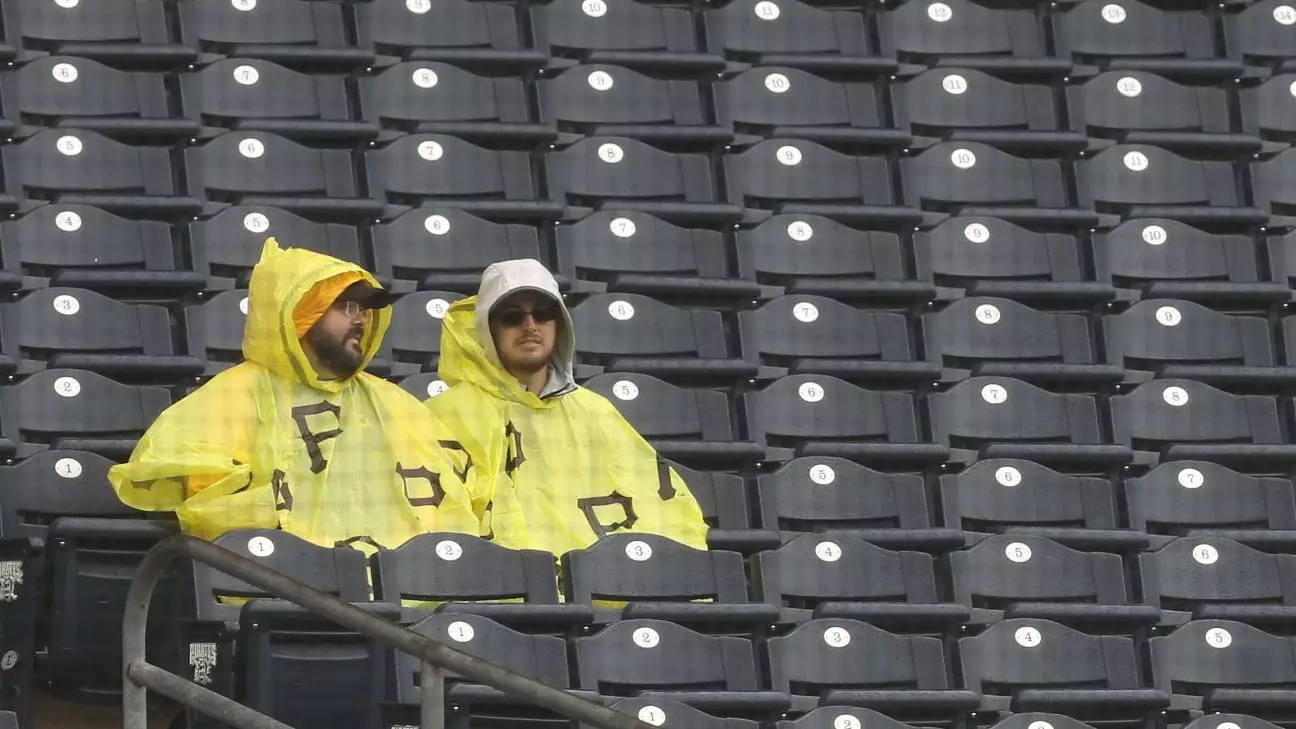In a recent event in Pittsburgh aimed at connecting with passionate baseball fans, CEO Travis Williams confronted a significant wave of frustration centered on the team’s ownership. During the Pirates’ annual offseason fan fest, life-long supporters voiced their discontent, culminating in chants urging owner Bob Nutting to sell the franchise. This scene wasn’t merely a spontaneous outburst; it encapsulated years of disappointment felt by Pirates fans who have watched their team spiral into mediocrity. Williams’ public declaration of Nutting’s commitment to the team—asserting he would not sell—further ignited the already simmering tensions.
The chants of “Sell the team!” echoing throughout the venue were representative of a broader discontent with the franchise’s performance. The recurring narrative of losing seasons has taken a toll on the Pirates’ loyal fanbase, who have yearned for a turnaround that seems perpetually just out of reach. While Williams implored the audience for respect, the emotion in the room highlighted the urgency for change within the organization.
Bob Nutting’s ownership of the Pirates has often been under scrutiny, particularly as the team has consistently found itself near the bottom of the National League Central standings. Fans are understandably critical; the Pirates have experienced four last-place finishes in the last six seasons and have not posted a winning record since 2018. With no postseason appearances since 2015 and only three since 1992, it is clear why frustration has reached a critical juncture.
Importantly, Williams’s assertion that Bob Nutting is dedicated to both Pittsburgh and winning must be critically evaluated against the backdrop of the team’s performance. While Nutting’s intent may very well be to cultivate a competitive franchise, the results often speak louder than intentions. The franchise has struggled to retain its best talent or to adequately invest in key players necessary for sustained success. Observers are left questioning whether Nutting’s commitment truly aligns with the resources allocated to strengthen the roster and improve the overall team performance.
Last season, despite brief glimmers of hope—such as a strong performance prior to the trade deadline—the Pirates ultimately faltered, finishing with a 76-86 record. This performance trend adds a layer of complexity to Williams’s claims regarding the organization’s commitment to success. The mid-season optimism created by promising players such as ace pitcher Paul Skenes was overshadowed by an unanticipated decline in the final months. It begs the question: Is the franchise genuinely on the path to improvement or merely experiencing cyclical highs and lows?
The historical context of the Pirates’ performance further complicates the narrative. The team’s struggle to maintain a competitive edge in a fiercely competitive league raises concerns about long-term strategies for success. The repeated inability to build on promising starts hints at deeper systemic issues that go beyond player performance. The dependency on brief successes without sustainable infrastructure raises alarms about the overall management and vision for the team’s future.
As Williams and his team work diligently to reassure wary fans, the path forward for the Pirates will require more than mere declarations of commitment. Concrete actions, investments in player development, and a clear strategic vision are essential to transition from perennial disappointments to a competitive force within Major League Baseball. The struggles of the Pirates are reflective of not just fan frustration but an untapped potential that the organization must confidently harness.
Organizational leadership is vital to maintaining the morale of both the team and its supporters. While Williams’s dedication is commendable, it is imperative for the Pirates to galvanize their efforts—both on and off the field. Winning requires a cohesive strategy that resonates with the fans’ desires for sustained success, and the franchise must heed the voices of its dedicated following or risk further alienation.
The Pittsburgh Pirates stand at a crossroads. As they move forward, addressing these critical challenges will determine whether fan hope can be transformed into tangible success on the field. Williams’s promise to build a winning culture must translate into actions that inspire trust and rejuvenate the excitement around the Pirates franchise, fostering a new era of competitiveness that fans have long craved.

